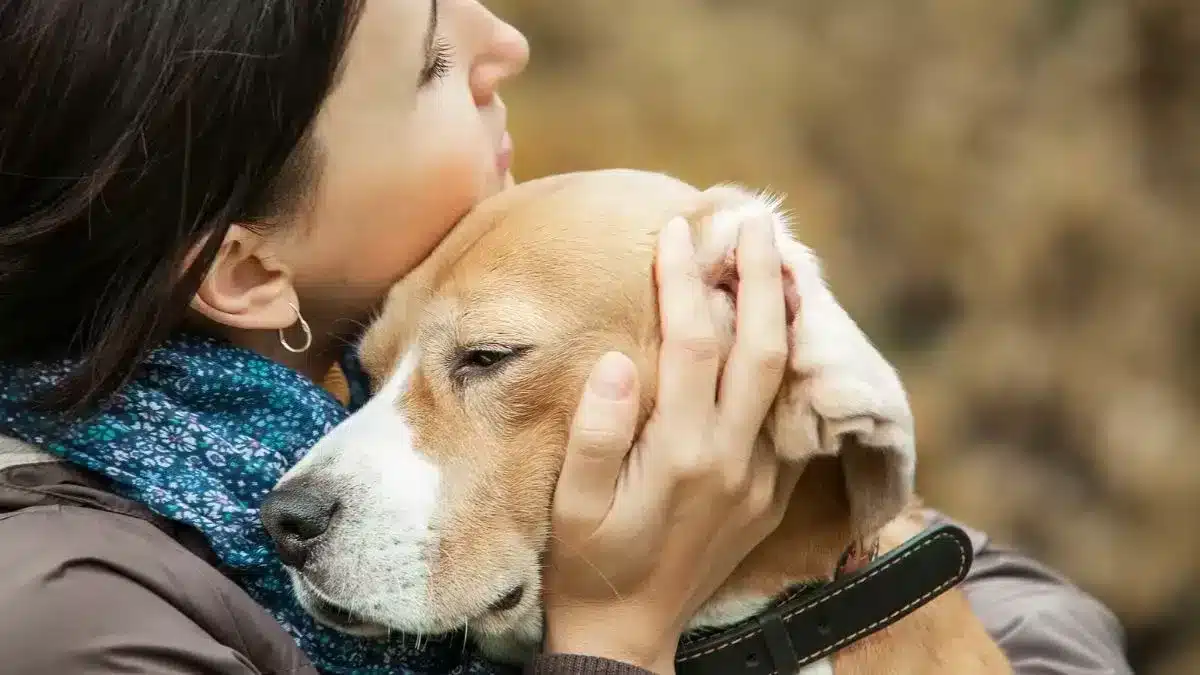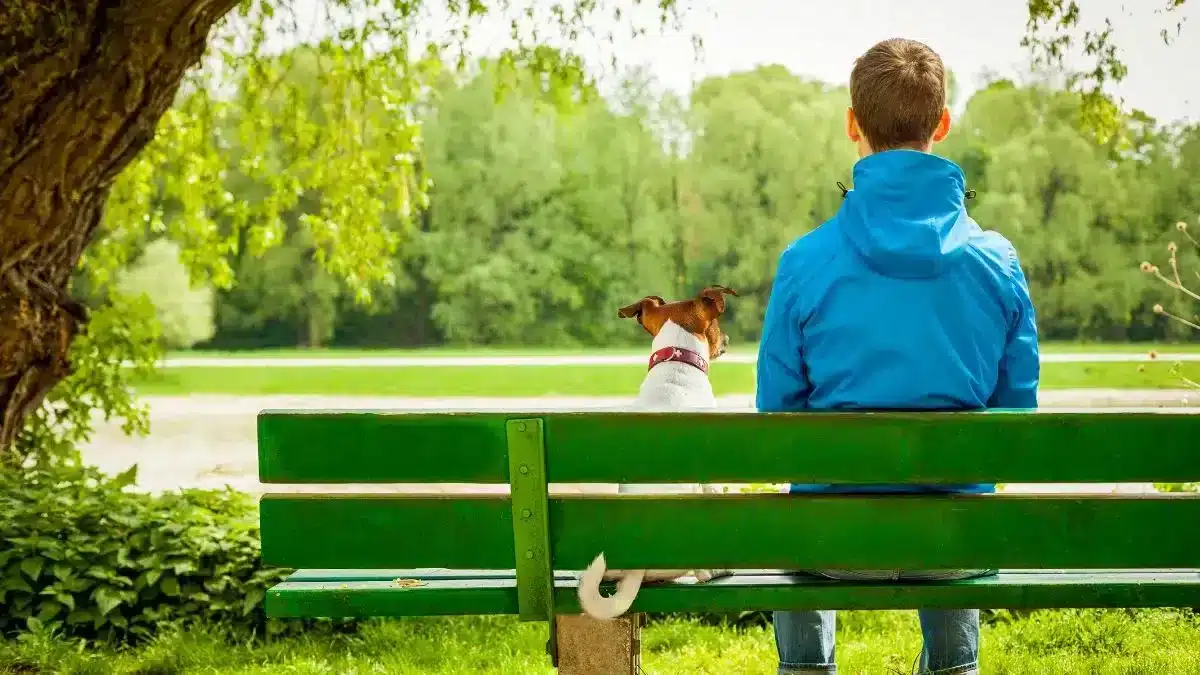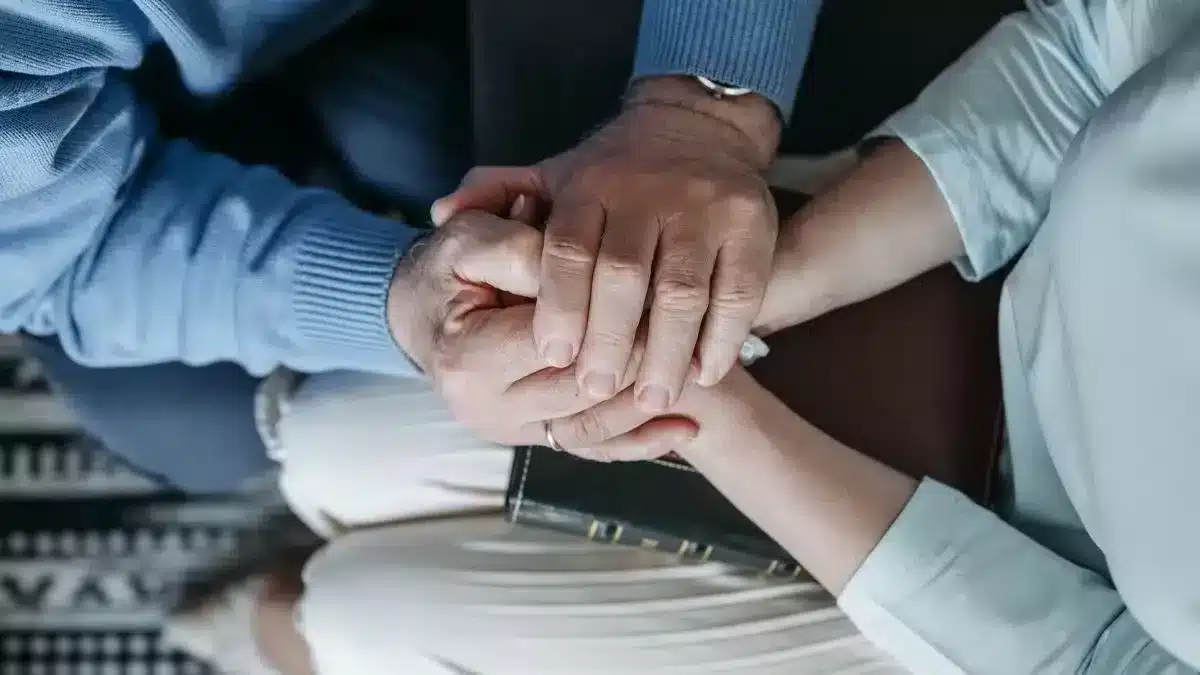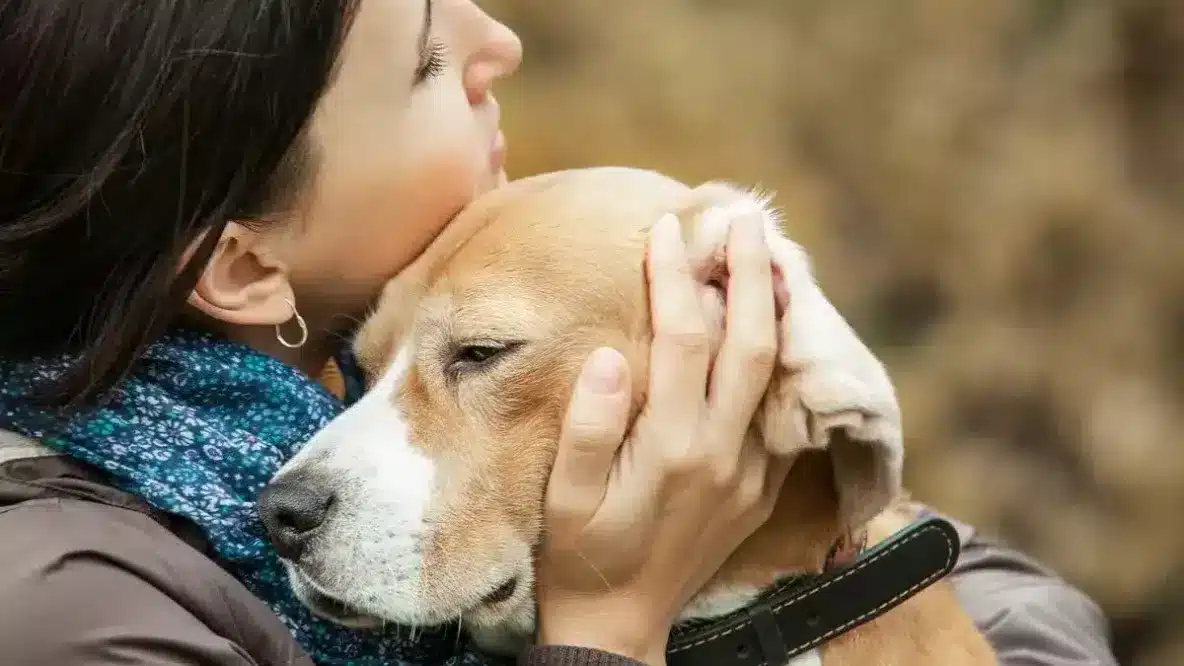
favorite Hello. hardest goodbye.
In the journey of pet ownership, one of the most heartrending decisions a pet owner may face is considering euthanasia for their beloved dog. This decision, often arising from illness, old age, or injury, not only challenges us emotionally but also calls upon our deepest sense of responsibility and love. It's a time when the need for pet loss support becomes crucial, as the bond we share with our pets is profound and their loss deeply felt.
As we explore the complex emotions surrounding the loss of a beloved pet, we turn to the insights of Kayla Pearen, a Registered Provisional Psychologist who specializes in grief therapy. Kayla, holding a Bachelor or Arts Psychology Honors Degree and a Master of Arts in Counseling Psychology Degree, combines profound empathy with deep professional knowledge.
As a Registered Provisional Psychologist, Kayla's approach is informed by her understanding of cultural diversity, trauma-informed care, and professional ethics. In this article, we engage in a thoughtful dialogue with Kayla, who offers her perspective on one of the most difficult decisions pet owners face: understanding when it's time for pet euthanasia. Join us as we navigate this sensitive topic with Kayla's compassionate and knowledgeable guidance.
How can dog owners begin to process the grief they feel even before the loss occurs?
This is a great question. When it comes to grief, a little bit of self-compassion can go a long way. Anticipating loss can be very painful for pet owners, who often don’t feel ready to say goodbye. Some things that may be helpful to say to ourselves before the loss can include: “It’s okay to be feeling this way” or “I am not alone in my experience, others have a hard time with this too.”
What are healthy ways to express and manage the emotions associated with anticipating the loss of a beloved pet?
While it can be tempting to push away or avoid our emotions, coming to accept how we are feeling is an important first step to moving through our grief. If it feels like too much to do this alone, it could help to talk to a friend, loved one, or a professional for support. Within moderation it is okay to feel and express an array of emotions that may come up, like dread, confusion, anger, sadness, relief, etc. If these emotions begin to negatively impact our day-to-day, this can be an indication that seeking support is a good idea.
Try your best not to judge yourself for any emotions that come up for you. While you may believe there is a certain way you should be feeling, grief can be very unpredictable and the last thing you need is pressure from yourself to fight against waves of emotions you experience.

How can dog owners deal with feelings of guilt or second-guessing their decision about euthanasia?
What strategies can be used to understand and reconcile these feelings of guilt?
It’s possible that despite trying to make the decision that’s best for your pet, you still experience lingering feelings of guilt. As icky as guilt may feel, facing it and getting to know what its about may be helpful in the process of healing. If we do the opposite and try to run from our guilt, it may overwhelm us or seem too much to face. It is always encouraged to lean on others if you don’t feel okay facing these difficult emotions on your own.
If you decide to talk to a friend or family member about your guilt, it may be a good idea to let them know what response you are needing from them – i.e. do you need reassurance that you made the right choice? Or are you just looking for them to listen, and not comment on your decision?
Remember as well that all emotions are temporary, just like clouds in the sky they come and go. You may feel like your guilt is going to stick around forever, but remember that with time it will get smaller and become more manageable.

How does the bond between the owner and the pet impact the grieving process?
One quote comes to mind when I think about this question:
“Grief, I’ve learned, is really just love. It’s all the love you want to give, but cannot. All that unspent love gathers up in the corners of your eyes, the lump in your throat, and in that hollow part of your chest. Grief is just love with no place to go.”
― Jamie Anderson
This idea, that grief is just love with no place to go, really speaks to what can be a common experience for pet owners: the more we love our pet, the more difficult it is to say goodbye to them. For some owners, pets can be a big part of our lives, and they can play many roles for us including offering a sense of routine, emotional support, a sense of joy when we see them getting up to something cute or silly, and the list goes on. Losing out on all of those small and big parts of our day can make it difficult to cope once our pet is gone.
This is not to say that it is easier to cope with grief if you are someone who did not have a close bond to your pet. In situations like this, it can be just as difficult or even more challenging when it comes to having feelings of regret, disappointment, or anger towards a pet just to name some examples.
While the bond may play a role in how a person is able to cope with their grief, everyone’s experience is unique and that is completely okay.
Can you discuss ways to honor and remember this unique relationship after the pet’s passing?
I think the best way to summarize this is to do things that bring you a sense of comfort or peace. For some people, it may feel helpful to leave out some of the pet’s items in the house, to get a ceramic paw print, or to display photos, holiday ornaments, etc. that remind you of your pet. There are many ways to create memorial art pieces or decor to remember your pet, both DIY style and through some vet offices and other businesses too. If this isn’t for you, that’s okay! The best way to honour your relationship with your pet is to honour your needs.
How should families communicate and support each other during this time, especially if there are children involved?
Having open conversations about grief is important in families, for example discussing ideas for honouring the pet together. While not everyone may agree or have the same needs, its important that everyone is heard. For example if one family member does not like the idea of putting up photos, perhaps the other family members can place photos in their own bedroom rather than in a shared space.
With supporting kids we want to make space for an honour any feelings they have, and reassure them that it’s okay to have good days and bad days. A great book to share with kids is The Invisible Leash by Patrice Karst. Books can help parents/guardians with starting difficult conversations about grief with their kids. Encouraging kids to talk to adults about their grief is important, and accessing grief counselling for kids is a good option too if the child is having a difficult time working through their grief.

What advice do you have for explaining pet loss to children?
How the adult will go about explaining the loss to the child will depend on age since children will react differently based on their development. For example, younger children may not fully understand what death means. What’s important is to be honest with the child about what happened, and to offer child appropriate information. Being too vague such as saying the pet went to sleep or was put down can be confusing to children, as they don’t often know what these terms mean, leaving them wondering where the pet is.
Although it can feel difficult to say it, telling them the pet has died is helpful for them. It is best to be direct but to use a gentle voice and ensure the conversation isn’t rushed. As an adult it is completely okay to you’re your own emotion when talking to your kids about pet loss, and it can actually be helpful for them to have a role model to show them that emotions are okay!
How important is self-care for pet owners during this time, and what forms might it take?
While self-care is always important, pet owners should consider finding way to increase their self-care after pet loss. This doesn’t have to be a big time or money commitment, just adding small comforts into each day like enjoying a warm drink, extra hugs with family members, or scheduling more down time at home can be helpful.
Overall, it’s important to be realistic about how you’re feeling and whether you need to revamp your schedule, temporarily, to make sure you’re not trying to push through your regular commitments while not feeling your best. With time, you will begin to cope with the difficult emotions and can get back into your regular activities. When grieving, healthy distractions like going to work, exercising, or engaging in hobbies should be balanced with down time focused on comfort self-soothing.
Can you suggest ways for owners to practice self-compassion while they navigate this difficult period?
Allow your emotions to come and go without judgement, just acknowledge that they are there. If you find it difficult to be kind to yourself, trying imagining nice things you would say to a friend or family member during difficult times, then, try saying those same things to yourself. There are also many great online tools for practicing self-compassion, some of these incorporate guided mindfulness or medication practices. Depending on what fits for you, it may help to look through the tools online and try a few to see if they help.
What can be done to make this time as meaningful and comforting as possible for both the pet and the owner?
Consider what might be a good balance for you between planning special time together and ensuring you don’t put too much pressure on yourself to make the time together perfect. If needed, keep your plans with your pet simple and attainable – just spending some time with you probably means the world to them!
What does the journey of healing look like after the loss of a pet?
This is very unique to every pet owner. As with any loss, grief takes time, and there is no specific timeline as to when someone feels they have moved through their grief. It’s possible that months or years down the road, emotions from pet loss may still be triggered. But, over time, we begin to cope with the loss of our pet and despite missing them, the heaviness of our grief slowly begins to lift.
It is common for things to feel overwhelming and heavy the first few days after the loss. If it would feel helpful, consider taking some time off work or school to allow yourself space to heal. Again, there are no right answers as to how you navigate your grief, just do your best to honour what you are needing.
How can pet owners find closure and move forward while keeping the memory of their pet alive?
Know that moving forward with your life does not have to mean leaving your pet behind. Letting go of heavy emotions over time also doesn’t mean you are letting go of the memory of your pet. It’s okay to continue to reminisce and talk about them, think about them, and memorialize them in ways that are meaningful to you. It can be common to feel guilty for moving forward with life, but remember it is normal and okay to keep on living, and to feel joy again after loss. Gaining closure is another unique experience, and for some it can come with a sense of acceptance of the loss (which doesn’t mean we like what happened, we are just acknowledging that it is our reality).
If you are struggling to find closure, talking through your experience with a supportive person may help. Sometimes we have to do this many times before we start to move towards closure, and that’s okay too. Some losses are very difficult to process, allow yourself the time and space you need to get there.
Pet Loss Support Counselor

Connect with Kayla Pearen for Compassionate Pet Loss Support
If Kayla's insights resonate with you and you're seeking guidance through the emotional journey of pet loss, don't hesitate to reach out.
Book an appointment with Kayla Pearen, a skilled and empathetic counselor specializing in grief therapy, to find the support and understanding you need during this challenging time.
Call Serenity Now Wellness at (403) 454 7600 to set up your appointment today!

